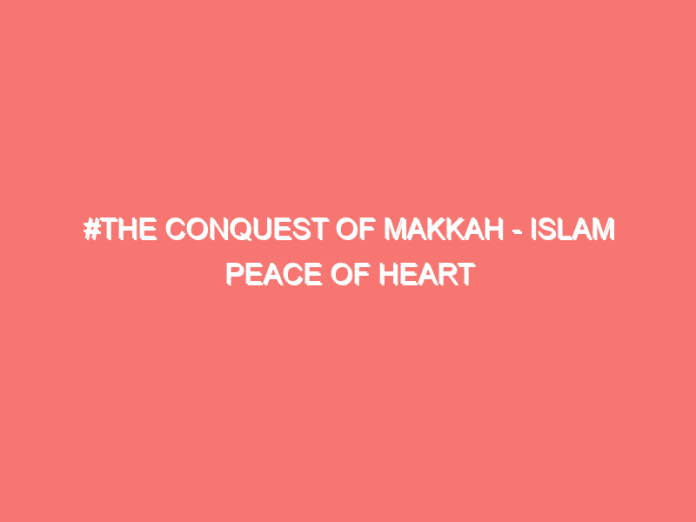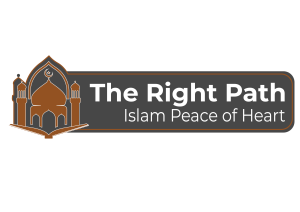After the Treaty of Hudaibiya, the Khuza tribe joined the Muslims, while the Banu Bakr tribe became an ally of the Quraish. One of the terms of the treaty was that neither party would fight an ally of the other party. In violation of this clause of the treaty, the Quraish, along with the Banu Bakr attacked and killed the men of Banu khuza. A deputation of the Banu Khuza came to the Holy Prophet PBUH and asked for his aid and protection. The Holy Prophet PBUH promised to help them. He sent a messenger to the Quraish offering them three alternatives:
1. To pay compensation or blood money for the men of Banu Khuza.
2. To dissolve their alliance with the Banu Bakr.
3. To declare that the treaty of Hudaibiya stood dissolved.
The Quraish took the third option. The Holy Prophet PBUH decided that there was no other alternative but to fight against the Quraish. He, therefore, ordered preparation for Jihad.
The Holy Prophet PBUH left Madinah on the 10th of Ramazan 8 A.H., with an army which by the time he reached Makkah, numbered ten thousand. The Holy Prophet PBUH divided his army into four groups and gave instructions to all that no blood was to be shed and they were not to fight unless they were attacked in which case they should defend themselves. The Quraish who had never seen such a huge, well-armed and disciplined army before, offered no resistance; but the unit under the command of Khalid bin Walid was attacked by the tribesmen of Banu Bakr and also by some of the most hostile Quraish. Khalid bin Walid had, therefore, no option but to fight back. In this encounter twenty-eight men were killed.
Before entering Makkah the Holy Prophet PBUH announced a general pardon, except for Sixteen or seventeen persons who were the bitterest enemies of Islam. A messenger preceded the Holy Prophet PBUH asking the people to have as no one would be killed or injured. He also announced that anyone who laid down his arms would be safe, anyone who took refuge in the house of Abu Sufyan, till then one of the Holy Prophet’s PBUH bitterest enemies, would be safe and that anyone who closed the door of his house would be safe All these promises were fully kept and the entry of the Holy Prophet PBUH army into Makkah was absolutely peaceful.
The Holy Prophet PBUH proceeded to the Masjid-e-Haram and performed Tawaf of the Ka’abah. After performing Tawaf, he entered the kabah and ordered the destruction of the three hundred and sixty idols which had been placed by non-believers in the Ka’abah. While the idols were being removed, the Holy Prophet PBUH recited the following verse:
“And say: Truth has (now) arrived and falsehood perished: for falsehood is (by its nature) bound to perish,” (17:81)
When the Holy Prophet PBUH came out of the Ka abah there Was a huge crowd of the Quraish waiting for him. All his deadliest foes and his bitterest enemies who had for nearly twenty-one years, injured, insulted and persecuted the Holy Prophet PBUH and his followers, were now before him as his captives.
The Holy Prophet PBUH asked them what treatment they could expect at his hands. They cried out:
“You are a noble brother and a noble cousin.”
On this, the Holy Prophet said, “There shall be no reproach against you this day, 80, you are free!”
Eventually the Holy Prophet PBUH also pardoned twelve or thirteen of those who had been excluded from the general pardon. Only four persons out of the original list were actually executed. History cannot cite another instance of such magnanimity and mercy on the part of a conqueror. Stanley Lane Poole in his book, The Speeches and Table Talk of Prophet Muhammad, writes:
“He freely forgave the Quraish all the years of sorrow and cruel scorn in which they had afflicted him and gave amnesty to the whole population of Makkah. The army followed his example, and entered quietly and peacefully: no house was robbed, no woman insulted. It was thus that Muhammad entered again his native city. Through all the annals of history there is no triumphant entry comparable to this one.
Arthur Gilman in his book, The Saracens, says:
“It is greatly to Muhammad’s praise that on the occasion of the Conquest of Makkah, when his resentment for ill usage in the past might naturally have incited him to revenge, he restrained his army from shedding of blood, and showed every sign of humanity and thanksgiving to Allah for his goodness”.
The Conquest of Makkah opened a new era in Islam. It practically settled the struggle for supremacy in Arabia and the Prophet PBUH was elevated to a paramount position over the whole peninsula.
After the purification of the Ka’abah before the Zuhr prayer the Holy Prophet PBUH directed Bilal to ascend the roof of the Ka’abah and announce the Azan. After the prayers, the Holy Prophet PBUH proceeded to the Safa Hill and people came in crowds to embrace Islam. About this, the Quran says:
“When comes the Help of Allah, and victory, And thou dost see the people enter Allah’s Religion in crowds, celebrate the praises of thy Lord, and pray for His forgiveness (110: 1-3)
The Holy Prophet PBUH stayed in Makkah for fifteen days. He devoted his time to explaining the teachings of Islam. During this time the neighbouring Arab tribes also came to Makkah and embraced Islam. After appointing a governor for Makkah the Prophet returned to Madinah.











